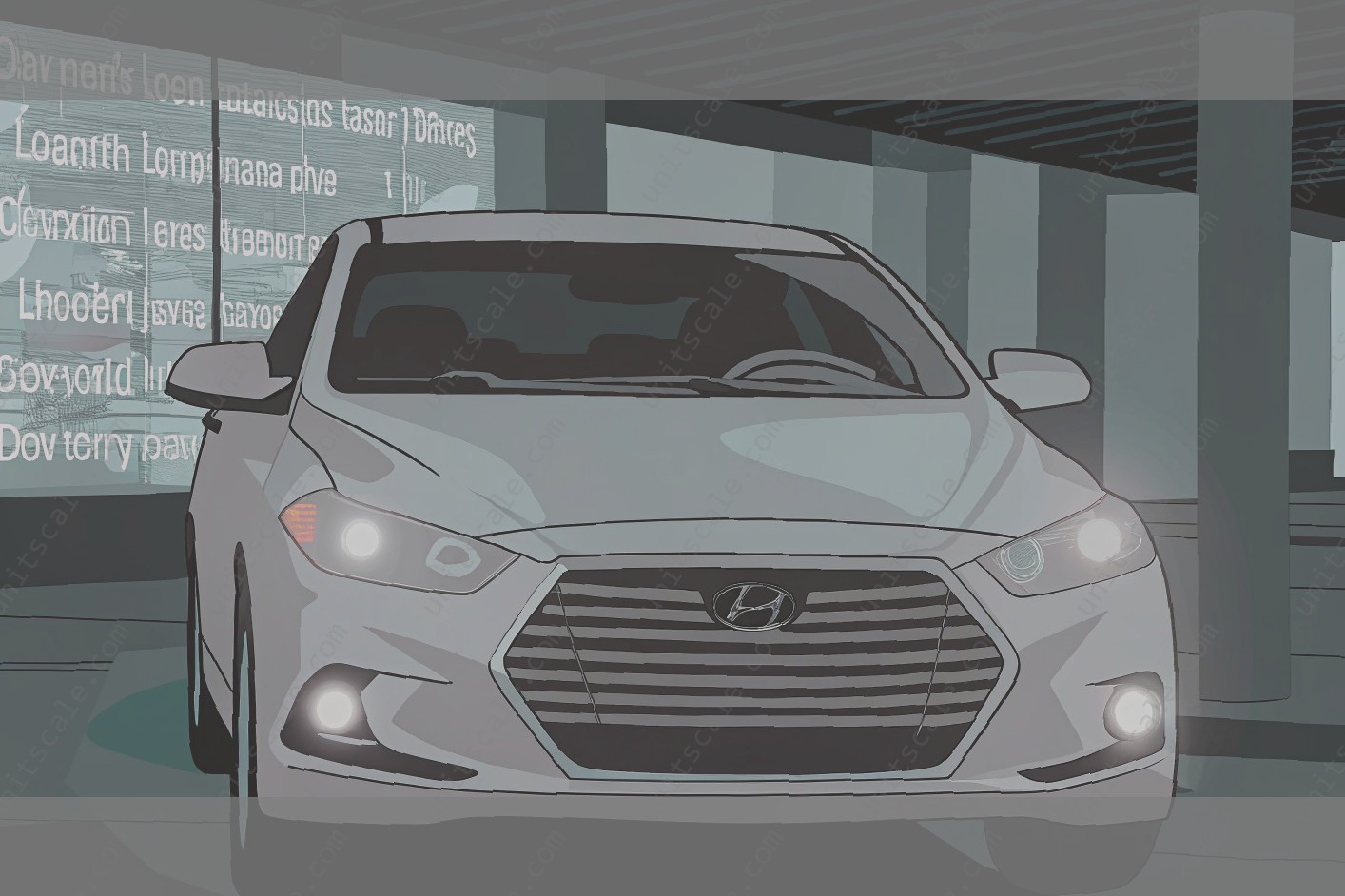The Ins and Outs of a Lease for a Hyundai
A Hyundai lease is a leasing agreement between the lessee and Hyundai. In this contract, the lessee agrees to pay for use of the car. This is a simple explanation but, in more technical terms, a leasing agreement is a long term rental agreement, where the consumer agrees to rent the car for a set number of months for a guaranteed monetary amount. Leasing differs from a standard purchase of the car in that the consumer essentially pays for the expected depreciated value of the car during its use by the consumer , rather than the full market cost of the car. This difference in cost can make leasing attractive to some consumers. However, lease agreements can be complex and fraught with potential pitfalls to the consumer; therefore, diligently reviewing the lease agreement before signing is extremely important.

Parts of a Hyundai Lease Contract
At the core of any lease is the contract, and a Hyundai lease contract is no exception. The terms of the deal are outlined in this agreement, which includes basic information such as when the lease begins and ends, the date of purchase, and the vehicle identification number. The contract also outlines the standard mileage limits, monthly payments, and amounts due at signing. A key aspect is the residual value, which indicates how much the car is worth when the lease ends. Additional fees listed in the contract may include those for excess mileage, wear and tear, and disposition charges. Hyundai provides a number of examples from which you can view lease contracts before signing. However, regardless of what contract you have, this document will go over critical components of the lease so you can understand the deal.
Advantages of Leasing a Hyundai
There are a host of benefits to leasing a Hyundai. From lower upfront costs and monthly payments to the option of driving a new vehicle every few years, leasing packs a lot of important advantages into a single, simple option. If you’re trying to decide on whether you want to buy a new Hyundai or lease one, here’s a closer look at the benefits of leasing and how they compare to the drawbacks of buying.
Leasing comes with far lower down payment options as well as lower monthly payments. This means that you can drive away from the dealership without laying out thousands of dollars up front. Cutting down on your monthly payments also means having more cash in your pocket on a month to month basis. This is especially important if you’ve bought a new car before and know what it’s like to constantly lose money on a depreciating asset.
Another benefit of leasing is the ability to drive a new Hyundai every few years. Every lease guarantees the use of a new car for a period of two to four years. This doesn’t mean that you won’t be able to hang onto a Hyundai for longer if you want to. However, at the end of the lease period, you generally have the option of leasing a brand new Hyundai. This benefit is especially desirable to those who want the latest features and cutting-edge technology. It also means that you won’t be left with an outdated vehicle at the end of a couple years.
When you finance a new Hyundai, you’re responsible for maintaining it. If something goes wrong, the entire financial burden will be on you. Leasing, however, doesn’t place the entire maintenance responsibility solely on the consumer. Most leases come with warranty programs for the entire lease period and sometimes even longer. As long as you’re a responsible driver who incurs a reasonable amount of damage to the vehicle, you won’t have to pay for anything yourself.
However, leasing a Hyundai is not without its drawbacks. The most significant drawback of leasing is the lack of liberty in how you can use the car. While a finance purchase allows you to take the car to even a cross-country road trip, you’ll be limited to the kind of travel you can do without incurring extra penalties on the lease. Extra mileage beyond the set limits and significant wear and tear on the vehicle can lead to monthly lease fees that pile up quickly. Though the leasing option is desirable for many, it isn’t for everyone.
Common Mistakes to Avoid in a Hyundai Lease
Customers looking for a great deal with a Hyundai lease may be in for a surprise with some potential pitfalls and unforeseen fees. Customers leasing a Hyundai vehicle need to be aware of these pitfalls so they are less likely to become victims of Hyundai contract traps.
One common trap is excessive fees at the end of the lease. Many consumers have found themselves paying extra fees at the end of the lease agreement, which can add up quickly if Hyundai applies excess mileage charges and/or excess wear and tear charges. These are only two examples of extra charges that quickly add up. Exceeding the maximum number of miles is a good way to lose any money you have saved while negotiating the terms of your lease. The standard lease agreement for all vehicles allows for about 15,000 miles driven per year . If you were to exceed this, there are two potential outcomes: pay a fee at lease termination or pay a fee with monthly lease payments. Any violation of the mileage waiver could be quite costly.
Another common pitfall is allowing future excess mileage charges to be deducted from your monthly lease payments instead of paying those charges separately at lease termination. Although this may seem like a good idea at first by lowering the required monthly payment, you may end up with more fees at the end of the lease than you would have had otherwise. Likewise, it is tempting to take a monthly payment reduction by paying a fee for excess wear and tear at the beginning of the lease. Although you save money by reducing the monthly payment, you end up losing every dollar that you have saved if the vehicle does not show any wear and tear.
Hyundai Lease Negotiations
To navigate the world of Hyundai lease contracts, it’s important to learn how to effectively negotiate the terms of each lease. Chances are you will be able to get a better deal on the leasing of your Hyundai vehicle than was offered to you initially. For example, if you decide before heading to a dealership exactly how much you should be paying for the vehicle, then you are more likely to end up with a lease that makes sense for your finances. In order to do this, research with online calculator and Hyundai lease contract guidelines before heading into the dealership so that you can easily refer to them during the negotiation process. The first thing to consider when negotiating is the price of the vehicle. Many people believe that this is already set, but there is always a negotiating point. Even if you make it clear to the dealership that you are not leaving with the car until the price is right, some people feel uncomfortable negotiating the price of a vehicle they want. This is important, however, as there is often a lot of room for adjustment on the price of the vehicle. No one will be upset if you respectfully try to get a bit more off the price of the car before leasing it. Credit requirement is another area where many people struggle to negotiate. Overall, everyone is looking for the absolute best credit rating possible, but you may have difficult time negotiating it. So, if you’re one of the unlucky few who don’t have the best credit, take a little solace in the fact that many people find themselves in the same predicament. With that said, even if you have what is considered a bad credit score, that doesn’t necessarily mean you shouldn’t try to negotiate your Hyundai lease contract. There are times when dealerships are willing to cut you a deal due to their need to sell cars and move inventory. In these instances, dealerships will carefully look at your financial history when determining whether or not you are qualified for a Hyundai lease or purchase contract. Timing your lease is something that most people don’t think to consider when it comes to negotiating these leases, but it shouldn’t be overlooked as leverage in the negotiation process. Try to lease your vehicle at the end of a quarter or year, when dealers are under pressure to meet sales quotas, or consider leasing in the early spring to capitalize on the spring buying season. Hyundai lease contracts are available to everyone, but finding the absolute best deal isn’t too difficult if you know your options and you’re willing to negotiate.
Hyundai Lease-End Options
When your Hyundai lease comes to an end, you have some choices: you can buy the car, return it and either lease or buy another new car. You have a little leeway with the timing, but it’s important to get started on whatever path you choose well in advance.
If you want to buy the car, you’ll need to know how much it’s worth and figure out if it’s a good deal for you. You will want to pay close attention to the residual value listed in your lease agreement . More info on figuring the real value of your car is discussed in the article Should I Buy My Car From the Leasing Company?
You also have the option of purchasing a new Hyundai when you return your lease. There may even be incentives from the manufacturer to take advantage of. Whether they are worth it depends on the details of the deal they propose.
A lease-end specialist can help you make the right decision.



